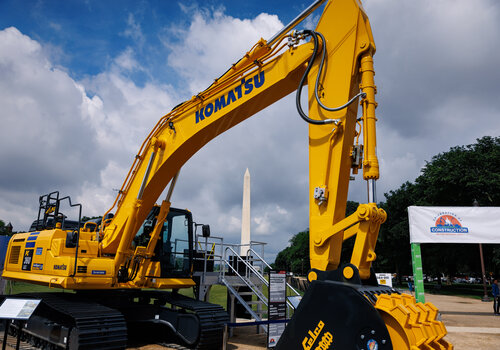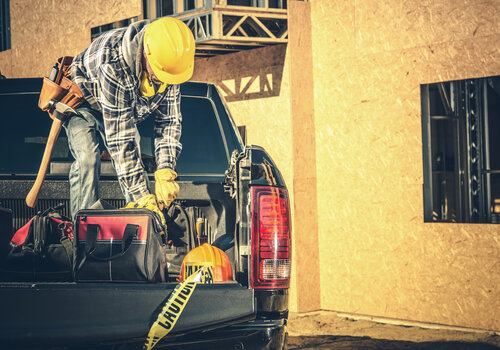If you are in a mental health crisis, call or text 988 to speak to a crisis counselor now. You can also text HOME to 741741 to reach the Crisis Text Line and speak to a live, trained crisis counselor. Learn more about the Suicide & Crisis Lifeline 988.
There is a clear need for mental health resources in the construction industry—and at all levels. Mental health is connected to physical health and should be approached the same way we tackle physical safety concerns. Fortunately, there are people in the construction industry who are passionate about helping others. There are several programs that can help, whether you’re an individual searching for help for yourself, concerned about a friend or are a business owner ready to incorporate mental wellness into your business:
Construction Industry Alliance for Suicide Prevention (CIASP)
CIASP was formed to directly address the CDC statistics about suicide rates in construction. The organization aims to raise awareness about suicide, eradicate stigma and provide resources to the construction industry. Take the STAND Up pledge today!
- Toolbox Talks: “Safety starts with what’s under the hardhat.”
These toolbox talks provide information about suicide prevention and mental health that contractors can use as part of standard safety briefings. - Mental Health Screenings: Users can take a mental health screening to determine their risk factor for mental health challenges and to find the appropriate resources to help.
Note: This is not only for suicide risk and depression. There are options for tackling substance use, mood changes, eating concerns and more. - Needs Analysis: The Needs Analysis & Implementation Tool is designed to help companies evaluate how they address mental health in the workplace.
If we're talking about mental health first and the fact that it is that continuum, and that we all sort of fall on that scope somewhere, then we're really starting to have conversations that need to happen around our industry.
Sonya Bohmann
Executive Director, CIASP
Construction Suicide Prevention Partnership
The Construction Suicide Prevention Partnership is a partnership between the construction industry and Lines For Life created as a direct response to the high rate of suicide deaths of construction industry workers. Its mission aims to create and implement a unified strategy to reduce suicide in the construction industry while promoting mental health.
- Toolbox Talks: These Toolbox Talks cover information from the impacts of alcohol and opioids to guides on mindful breathing and utilizing employee assistance programs (EAP).
- Safety Plan Template: This worksheet provides a space for workers to write down warning signs, internal coping strategies, names and contact information for people to talk to in a social setting or people and professionals to reach out to during a crisis. It’s one page that someone can have on hand and use during a crisis, potentially saving a life.
- Resource Guides: The National Resource Guide acts as a directory for contact information someone can use in a crisis or to find ongoing care with therapy. Some of the resources are dedicated to specific groups who may have more detailed needs, such as therapy specifically for people of color or specifically for veterans.
Hopefully, mental health practices will be as standard as wearing a hard hat or wearing safety glasses because we know it's a risk. And if we just deal with it that way, maybe we destigmatize it because it's a public health issue. It's not a moral failing. It's not a sign of weakness. It's a hard job, and you need to take care of yourself to care for your mental health.
Max Margolis
Program Director, Construction Suicide Prevention Partnership
The Center for Construction Research and Training (CPWR)
CPWR is a nonprofit that aims to reduce occupational injuries, illnesses and fatalities in construction. In doing so, it covers a lot of training and research about all kinds of different topics relevant to construction workers. Still, its mental health offerings tackle how to deal with mental health concerns while also trying to look at the issue more proactively:
- Toolbox Talks: These Toolbox Talks look at some common causes of mental health issues in workers: Workplace Stress and Shift Work, Long Hours and Fatigue. These are offered in both English and Spanish to help reach all workers on the job site.
- Building Resilience: The Building Resilience training includes a workbook with instructions about how to approach mental health and wellbeing. From learning to “get uncomfortable” and have open conversations about mental illness to resources where workers can find help, the training provides a good way to start the conversation about encouraging mental wellbeing.
Mental health issues affect all levels. … It's important for safety and health professionals who are administering these mental health programs—for the upper leadership, the C-suite folks—to also take a beat and think about their mental health, and whether they need to take advantage of some of the programs that they're offering or talk to folks. It's not only the trade trade-level folks that are impacted.
Jessica Bunting, MPH
Director, Research to Practice (r2p), CPWR
Content Note: The CONEXPO-CON/AGG 365 newsletter will feature content about mental health over the course of the next few months. While these topics can be triggering, we want to remind you about one underlying feature: hope.
We will tackle topics related to suicide, PTSD and other mental health conditions that are prevalent in the construction industry. There are resources to help – whether you need help yourself or want to help a friend. Where there is help, there is hope.
One way to attack the mental health stigma is by telling your story. Please contact us if you would like to share your journey with CONEXPO-CON/AGG 365 readers.
Photo credit: JACOB WACKERHAUSEN/ISTOCKPHOTO.COM












